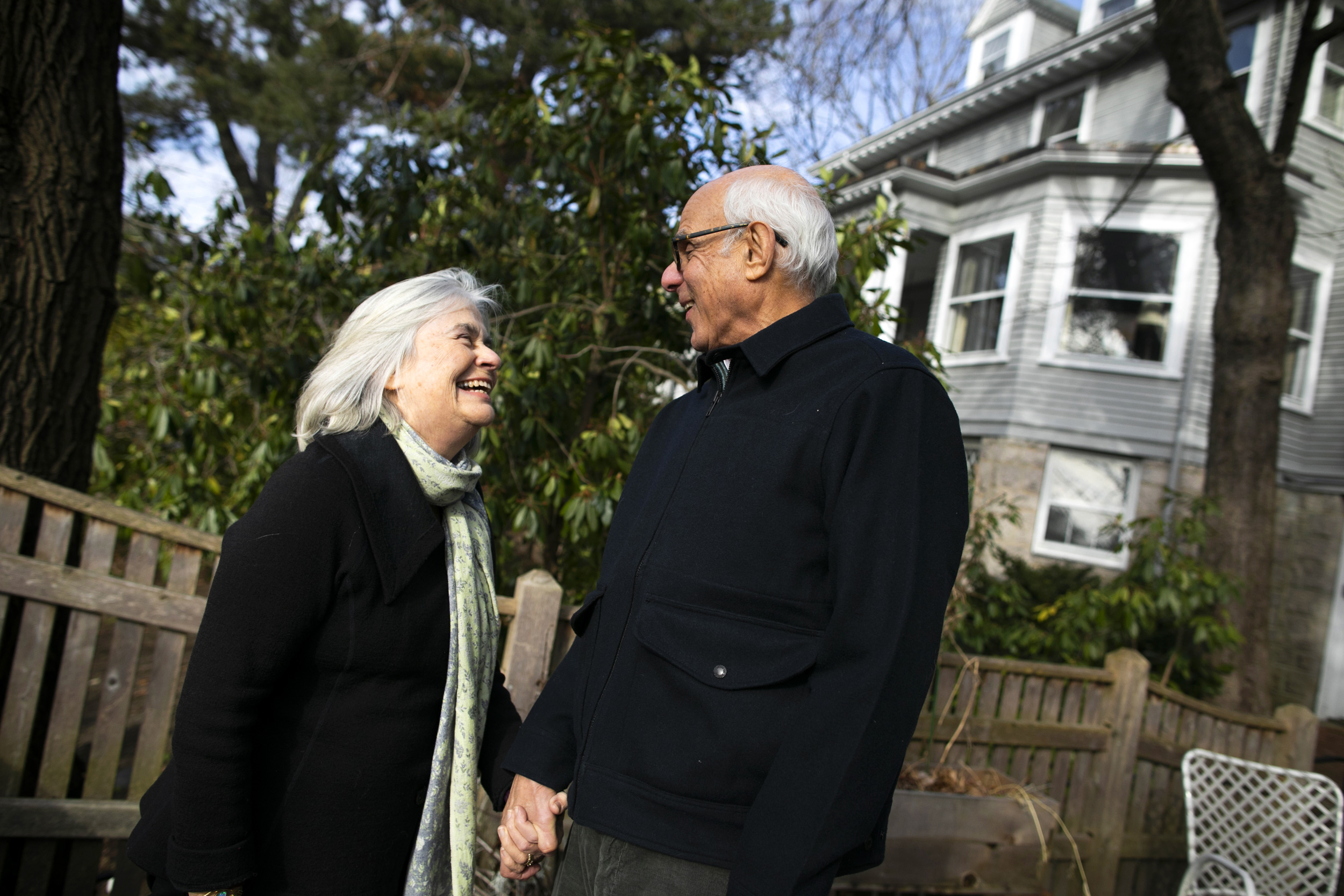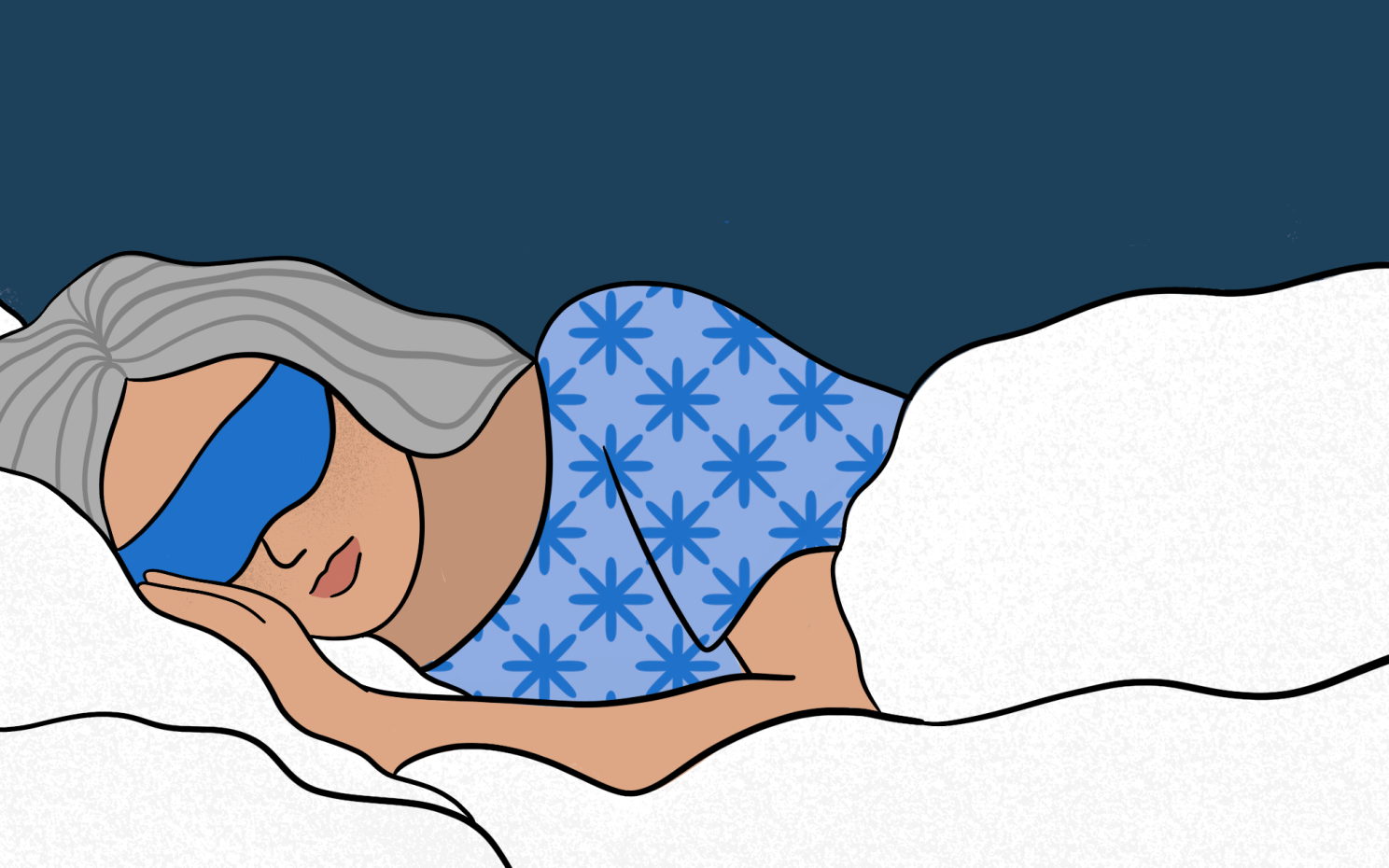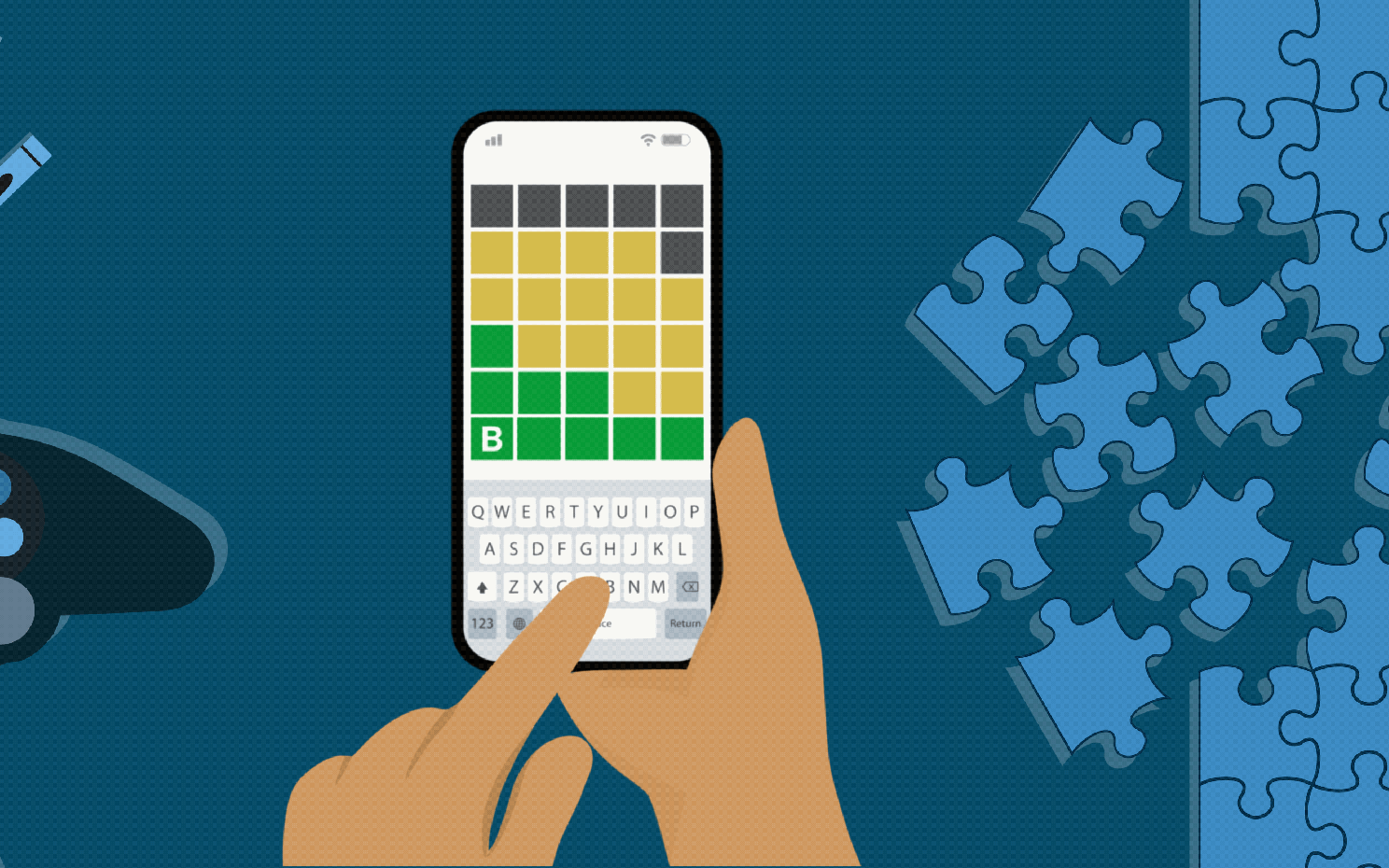Should married couples live apart?
Separate takes from husband-and-wife psychiatrists on distance, drift, and how to stay connected

Illustration by Daniel Pudles
Part of the Wondering series
A series of random questions answered by Harvard experts.
For the third installment, husband-and-wife authors and psychiatrists Jacqueline Olds and Richard Schwartz draw on decades of experience counseling couples to address physical and emotional distance in relationships.
Jacqueline Olds
When we first wrote our book about marriage, one of the underlying messages was that a couple can drift apart because of all their work and family obligations without even noticing the signs of drifting apart. During the pandemic, the problem is the opposite: There has been so much “together time” that people yearn for a little more time apart. But that doesn’t mean that they are falling out of love. It means that they are incredibly stir-crazy.
In a recent Wall Street Journal article, Clare Ansberry interviewed several couples with blended families who live apart to keep from having to uproot their children after a divorce. It certainly is true that whenever there’s a divorce or a big move, from a child’s point of view it is kind of a catastrophe. The more you can lessen that catastrophe, sometimes the better it is for the children. But it doesn’t always have to be a catastrophe. I had academic parents who moved a lot when I was a kid and each time I thought it was going to be the end of my life with friends and a sense of home. But each time I made new friends, and in the end, it made me much more adaptable, though at the time I just thought my parents were being needlessly cruel by moving.
When we’re dealing with people who are living apart — whether they want to or don’t want to — our job is to remind them what they need to do to stay connected. The pandemic has brought us new tools. Some couples leave Zoom open all evening so they can go about their business and talk as if the other was in the same room. This lets them spend time together without the pressure to have a long, sparkling telephone conversation, which they might not be up to doing on a regular basis after a day’s work. When you’ve experienced a long absence and there’s a real chance for reconnection, it ought to be a big deal. Each person, to some extent, should recognize how hard it has been being without the other person. So the visit time ought to be an opportunity for making a special occasion out of it.
Another piece of advice is to not let too much time go without a reconnection. There’s something we call the “rustiness phenomenon.” If you haven’t been with somebody for many weeks, you start feeling deep down in your unconscious, “Maybe I really never knew them at all. I can’t quite remember whether they like cream in their coffee, I can’t remember exactly whether they used to laugh at my jokes.” You need to reconnect often enough so there’s a lively image in your mind’s eye.

Olds and Schwartz at home.
Stephanie Mitchell/Harvard Staff Photographer
Richard Schwartz
In all marriages, couples need to find the right balance between togetherness and separateness. Too much togetherness and you end up feeling stifled, a little claustrophobic, and you lose the sense of curiosity about the other person that really is essential to keeping vitality in a marriage. Too much separateness and people tend to drift apart, feel less vivid to each other, and drift into relationships with people that they’re spending more time with. The right balance for a particular couple varies a huge amount. It probably varies more than we would have thought some years ago and — unfortunately — varies between individuals within a couple. The right balance for one might not feel right for the other. Negotiating that is a big job in a marriage.
More of the couples we see who are living apart are doing so for circumstances beyond their control and just trying to make it work. But there are some — and they tend to be the older couples coming together at a later point in their life — who are established and comfortable enough in their lives that they don’t want to complicate it by rearranging everything to be together.
What you lose in those separate living arrangements is the experience of physical closeness, the shared sensory experiences — touch, smell, warmth, the full presence of another person — and I do think that adds something to the sense of closeness. It’s a part of our biology of connection that digital technology just doesn’t give us.
There was a huge meta-analysis out of Brigham Young University a number of years back that found that several kinds of social disconnection shorten the lifespan. Living alone, apart from the frequency of seeing people, is an independent risk factor for a shorter life. Interestingly, they found that that wasn’t true for older people. But during the rest of life, that does seem to be true. You can’t go from those huge studies to saying what’s best for particular people. But we are biologically designed to thrive better in the physical presence of others.
— As told to Alvin Powell, Harvard Staff Writer

















